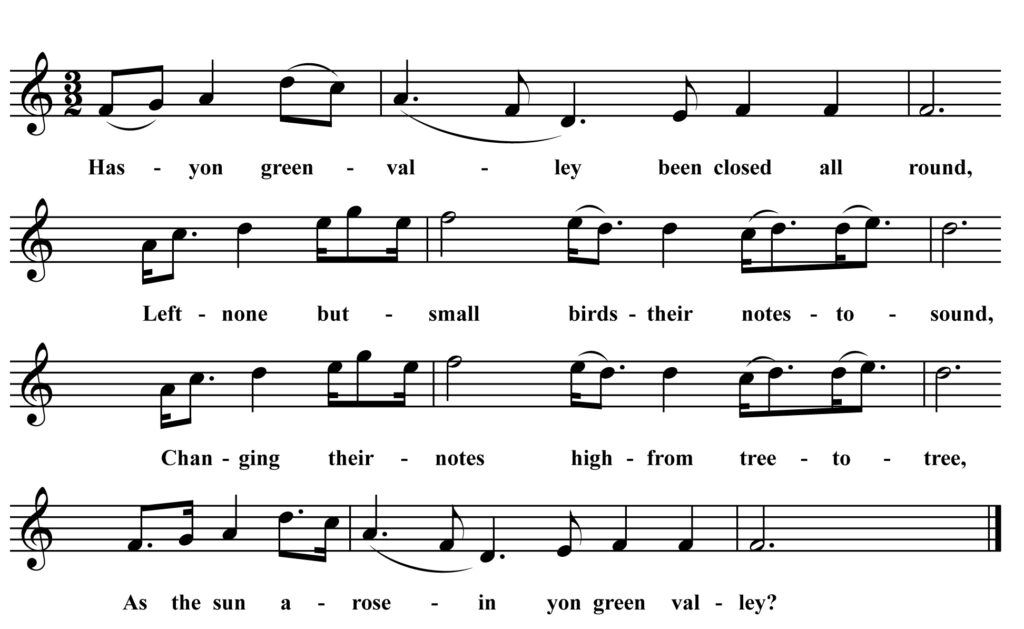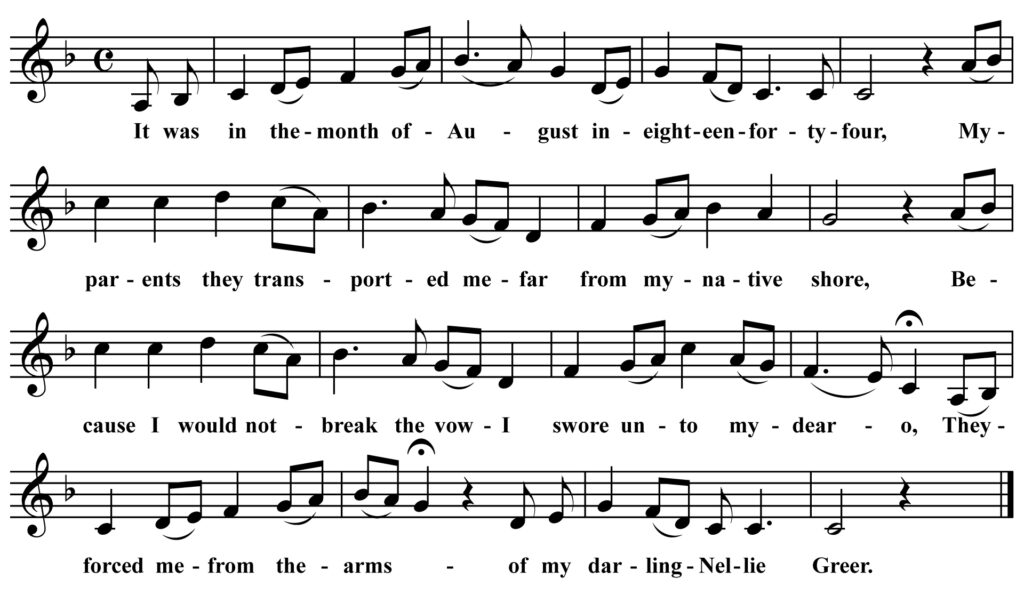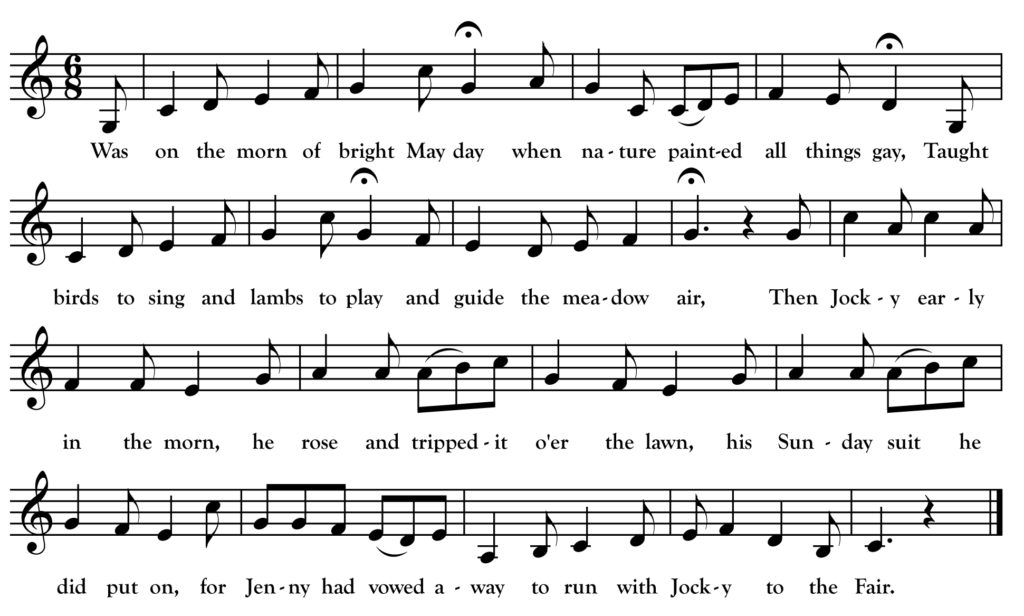Yon Green Valley

Has yon green valley been close all round,
Left none but small birds their notes to sound,
Changing their notes high from tree to tree,
As the sun arose in yon green valley?
It was on the Bible he made me swear,
Look at those few lines are written there,
No other man I’ll ever take,
And when he’s dead love none for his sake.
For a month or better my love proved kind,
And after that he changed his mind,
Saying, “’Tis my parents I must obey,
So farewell darling, I must away.”
I held him fast, would not let him go,
Saying, “You are mine by rights you know,
Fulfill those vows that you’ve made to me,
As the sun arose in the green valley.”
I will sing one verse of his yellow hair,
His rosy cheeks are uncompared,
His dark blue eyes so enticed me,
As the sun arose o’er the green valley.
I will sing one verse and I’ll sing no more,
Of the false young man I so adored,
I will change my mind like the wavering wind,
I will dote no more upon false mankind.
The Nova Scotia Archives website (archives.novascotia.ca) has made available a wealth of recordings made in Nova Scotia, New Brunswick and Prince Edward Island by collector Helen Creighton from the 1930s through the 1960s. Creighton published transcriptions of many of these songs through several valuable books but audio recordings of the vast majority of this material have been very hard to come by until now. There’s nothing like hearing the actual singers sing!
This song appears on the site as sung by Nova Scotia singer William Gilkie (Yon Green Vallee), New Brunswick singer W. E. Ireland and at least three other singers. Gilkie’s melody is fantastic and it’s easy to see why Creighton chose it for her book Maritime Folk Songs. I made my own transcription (very similar to Creighton’s) above and used some verses from Ireland’s version to flesh out the song (Gilkie only had a couple verses).
I would highly recommend spending some time on the Nova Scotia Archives site! It’s pretty easy to navigate and a treasure trove of material.


